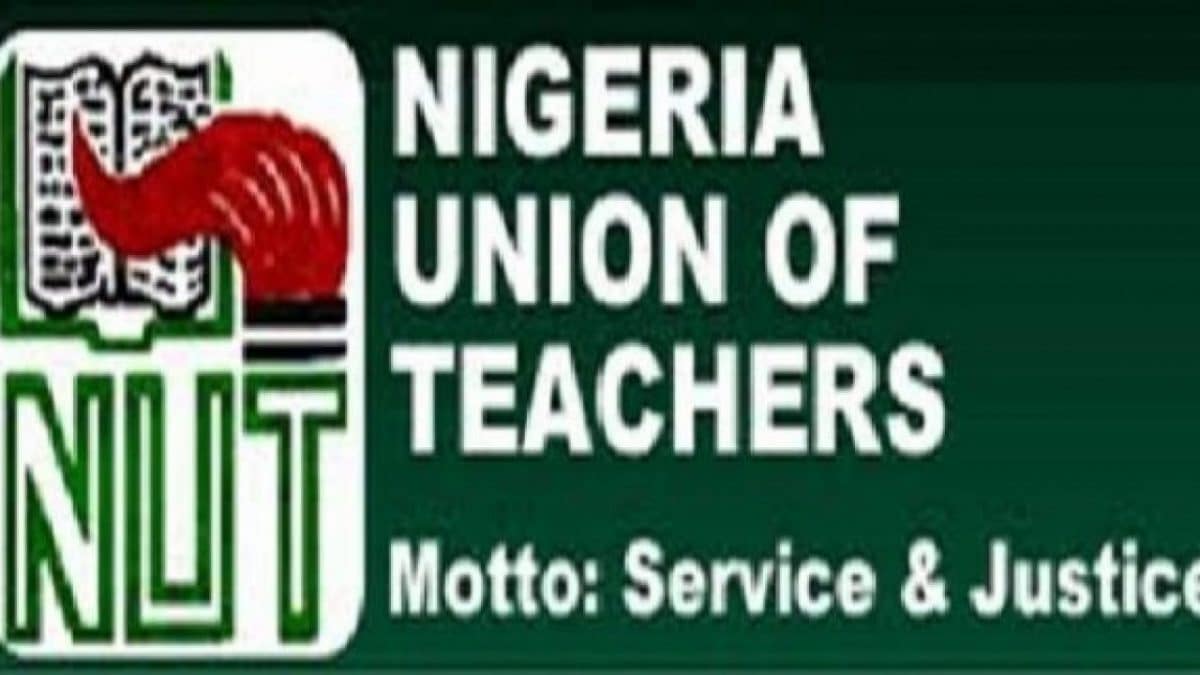Education
ASUU, Students Union Leader Bemoan Proliferation of Universities in Nigeria

Some stakeholders in University education in Nigeria, on Thursday, warned against the proliferation of universities in the country, following Wednesday’s approval of 20 new private universities by the Federal Executive Council (FEC).
In separate interviews in Benin, the stakeholders said there was nothing to justify the approval, when the existing universities were neither adequately funded nor properly monitored to ensure compliance, with appropriate guidelines.
Prof. Monday Omoregie, the Chairman of the Academic Staff Union of Universities (ASUU), University of Benin chapter, said that he had begun to see approval of more universities as political patronage, despite warnings, to the relevant authorities, on the inherent danger.
Omoregie said that expanding the existing universities would perform the functions the new ones were established to do.
According to him, education remains the vibrant instrument for development, hence the need for the government to do the needful in ensuring that the schools are run the way they are supposed to.
“Education is a social service, but these private universities are established by investors, who believe in profit making.
“The guideline is that private universities must be run for 15 years before any plan of making profit, but which university can do that”, he asked, saying that within a year of establishment, many proprietors would begin to crave gain.
Speaking in a similar vein, Prof. Monday Igbafen, Chairman of ASUU, Ambrose Alli University, Ekpoma, said that establishment of more universities, without proper recourse to the challenges facing the existing ones, was what the union had been trying to criticise.
“How do you justify the existence of additional universities, when there is this cry that even the private universities that are running now lack proper monitoring, to see if they comply with the NUC guidelines and what is required to run a university.
“They are all just centres of where they collect people’s money. That is why most of us are getting worried about the education system in the country”, he said.
When told that the approval might be to expand access to university education, Igbafen said that if properly funded one university in the country might take a half of the population of prospective university students.
“ABU (Ahmadu Bello University) can cater for almost half the population of students we admit in this country, but there is nothing on ground to sustain an ideal university.
“When you carry out objective assessment of these universities, you discover that they are not really universities; they are just there to divert our attention where the rich ones can send their children, whereas they will not be properly trained in terms of developing minds.
“It is all about just dishing out degrees; not necessarily interested in the content and quality of the product. It is just about giving out first class and what is important is to get money. I think it is necessary for government to reflect on some of all these decisions that they have taken.
“If we have to advance the course of our educational development in this country, it is not through proliferation of both private and public universities”, he said.
Also reacting, Benjamin Egwu, the President of the Students’ Union Government (SUG), said that the proliferation of private universities would soon cripple the standard and patronage of public universities.
“The attention of students is being diverted to the private universities,cause the situation of our public universities is worrisome. The incessant industrial action by the ASUU is one factor, while lack of proper funding is another.
“There is no need for the approval of more universities for now. These private universities are to shift attention from public school, because there is no much care about facilities in the public universities.
“The public universities are dying and if the situation is not properly checked, it will lead to what is currently happening to public primary and secondary schools in the country.
“If you compare the public and private primary and secondary schools, the difference is clear. It is affecting the system negatively and that is now moving to the higher institutions.
“It is getting to a situation where commoners would also not want to train his children in the public universities because of the environment”, he said.
Egwu bemoaned the obsolete state of facilities in the public university, saying “when you walk into any public university, whether state or federal, what you will see in its library are books of 1980s, 1990s.
“There are no update-to-date books in the libraries as we speak. Just ask the librarian when last they updated their shelves.
“The auditorium we are using at the University of Benin was built in 1981; about 40 years ago, without maintenance”, Egwu said. (NAN)
Education
UNICAL VC Promises to Resolve Dentistry Students’ Crisis

From Ene Asuquo, Calabar
The Vice Chancellor of the University of Calabar, Prof. Florence Obi has promised that she would do everything humanly possible to ensure that the ongoing crisis in the institution’s Department of Dentistry, is resolved.
Prof.
Obi made the promise in Calabar during a press briefing, stressing that she will resolve the crisis before leaving office.She explained that the problem predates her administration, and pledged to intensify efforts to rectify the crisis.
She added that the crisis was as a result of the Medical and Dental Council of Nigeria (MDCN)’s refusal to induct 2016 Dentistry students of the institution.She also debunked claims circulating on social media that the institution’s Dentistry programme has lost its accreditation, describing the reports as “misinformation and distortion of facts,” clarifying that the programme remains fully accredited and no students have been directed to transfer to other universities.
“At no point did the University ask Dentistry students to seek transfers to other institutions, nor were they advised to ‘go and learn a trade’ as falsely alleged online,” the VC stated.
“I will feel very bad if I leave without solving this problem and the students are left hanging without knowing their fate. I won’t be fulfilled,” she said.
She reaffirmed the University’s commitment to ensuring all Dentistry students graduate and are duly licensed as dental surgeons.
She noted that the Dentistry programme commenced in the 2013/2014 academic session, and in November 2019, the University secured pre-clinical accreditation from the MDCN and full clinical accreditation was subsequently granted in December 2022.
The VC added that the university’s synergy and partnership with the Minister of Education and the Tertiary Education Trust Fund (TETFund) to upgrade its facilities.
“All we asked for is time to engage with other institutions, update the Medical and Dental Council of Nigeria (MDCN), and follow through on due processes,” she noted.
Speaking further, Obi said that some of the affected students demanded to be transferred to the Department of Medicine and Surgery but said it was not the solution as the department was already saturated.
She urged the affected students to remain calm, noting that the university was doing everything possible to resolve the issues before the end of her tenure.
Education
NUT Reaffirms Commitment to Teachers’ Professional Development in Kwara

From Abdullahi Abubakar, Ilorin
The Nigeria Union of Teachers (NUT), Kwara State Wing has restated its commitment to strengthening the professional growth of teachers across the State, to enhance the quality of education delivered in public schools. Speaking at the opening of a three-day capacity-building workshop in Ilorin, the State Chairman of the Union, Comrade Yusuf Wahab Agboola, noted that continuous training of teachers remains a vital component of educational reform and improved classroom delivery.
The training, organised in collaboration with the NUT National Secretariat, is targeted at selected teachers and focuses on the “Study Circle Conveners’ Model”—a grassroots strategy for enhancing peer-to-peer learning and participatory leadership within the education sector.
Comrade Agboola explained that the workshop aims to equip teachers with practical skills in collaborative learning, peer engagement, and innovative teaching practices. He expressed optimism that the training would promote professional bonding among teachers and foster collective solutions to challenges facing the education sector.Also speaking at the event, the National Coordinator of the NUT Study Circle Project, Comrade Solomon Igbelowowa, traced the initiative’s roots to 1985 when it was introduced in Nigeria by the Swedish Teachers Association, having recorded success in Sweden and other parts of the world. He commended the Nigerian Union of Teachers for sustaining the project over the years and urged participants to engage fully and make the most of the training opportunity.
The workshop was officially declared open by the National President of the NUT, Audu Amba, who was represented by the 3rd National Vice President, Bashir Oyewo.
He encouraged teachers to approach the sessions with dedication and punctuality.
Education
JAMB Sets 150 Cut-off Mark for University Admissions

By Tony Obiechina Abuja
The Joint Admissions and Matriculation Board (JAMB) has fixed 150 as the minimum cut-off mark for admission into Nigerian universities for the 2025/2026 academic session.
The decision was reached on Tuesday during the 2025 Policy Meeting on Admissions, held at the Bola Ahmed Tinubu International Conference Centre in Abuja, with stakeholders from various tertiary institutions in attendance.
According to JAMB, 140 was approved as the minimum score for colleges of nursing sciences, while polytechnics, colleges of education, and colleges of agriculture will admit candidates with a minimum score of 100.
“The minimum admissible scores for admissions for the next academic session have been fixed at 150 for universities, 100 for polytechnics, 100 for colleges of education, and 140 for colleges of nursing sciences by the stakeholders (Heads of Tertiary Institutions),” JAMB announced via its official X account.



























